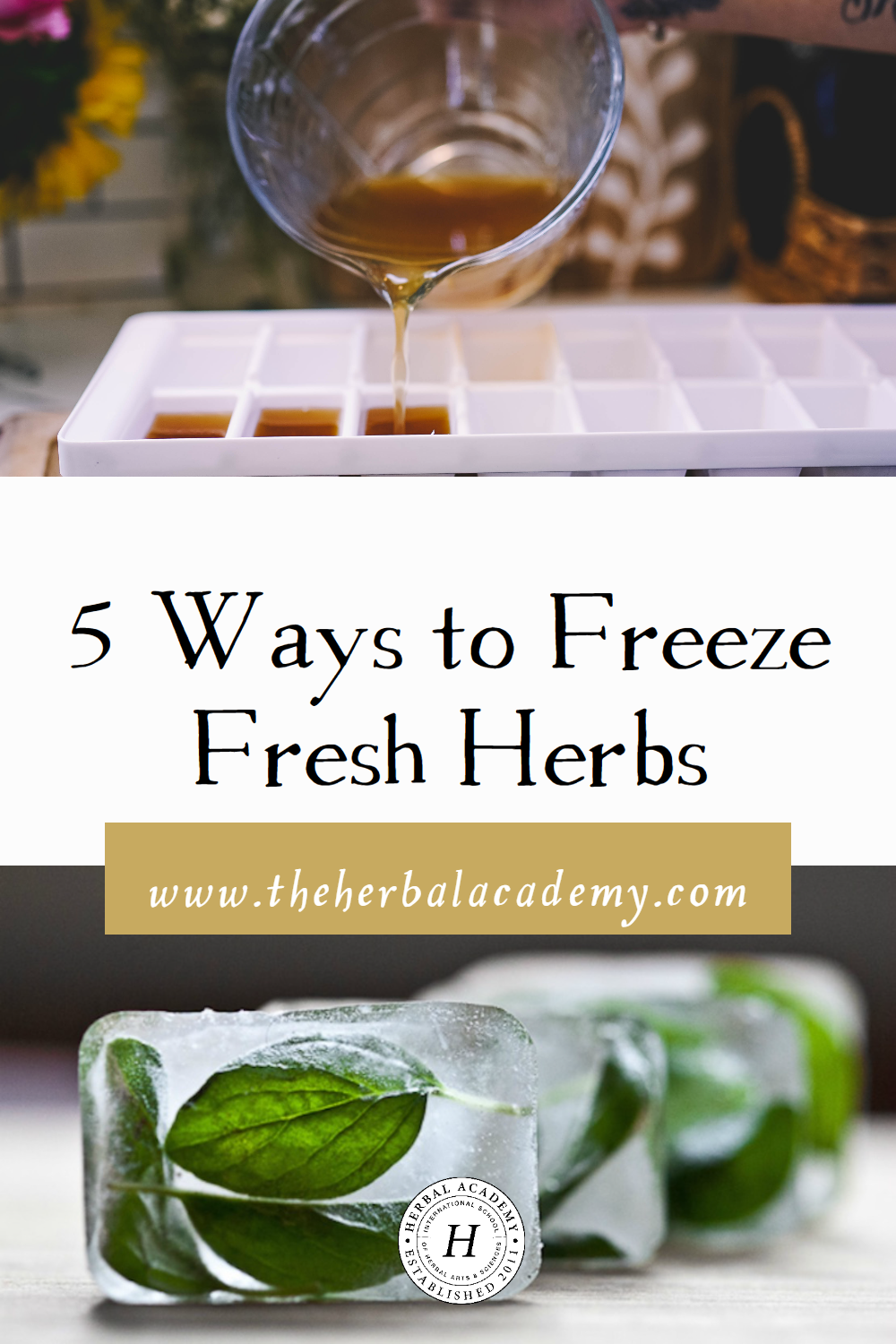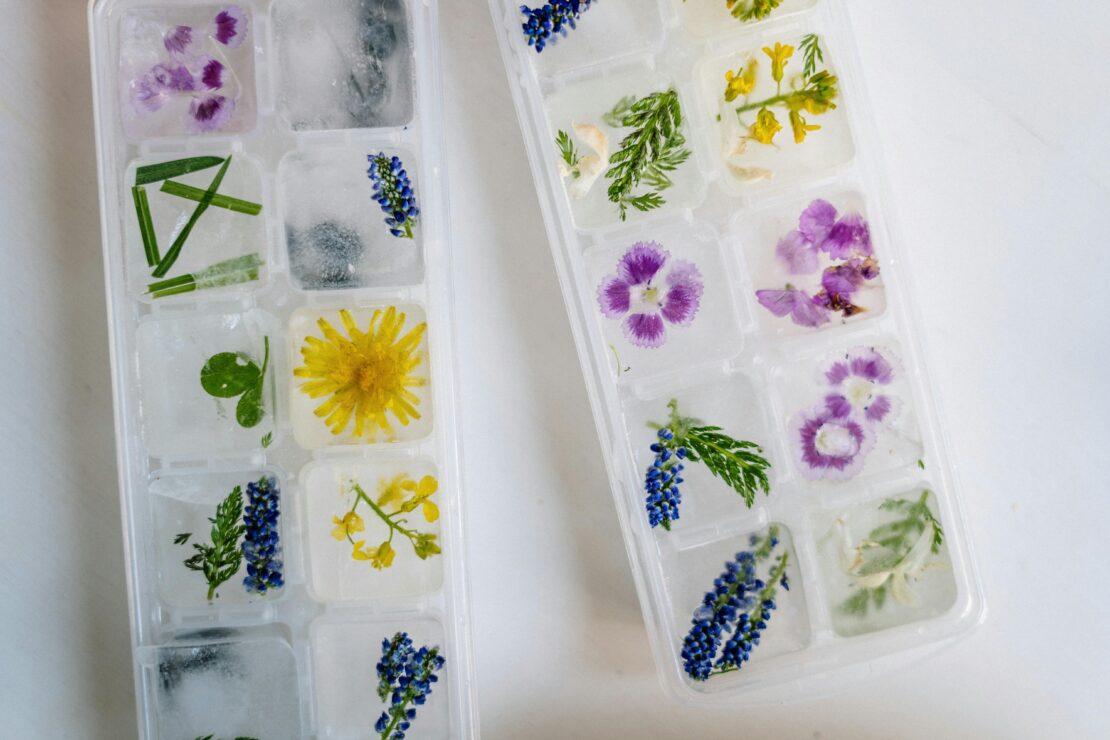
5 Ways to Freeze Fresh Herbs
It is high summer, and gardens are overflowing with herbs, many of which are at their peak and ready to harvest. This is the season when many leaves and flowers are most potent, and drying these herbs in bunches or laid flat on screens is one easy way to preserve summer’s bounty for later. When you freeze fresh herbs, it allows you to store your garden fresh herbs even longer, making your harvest more interesting and versatile than ever before!
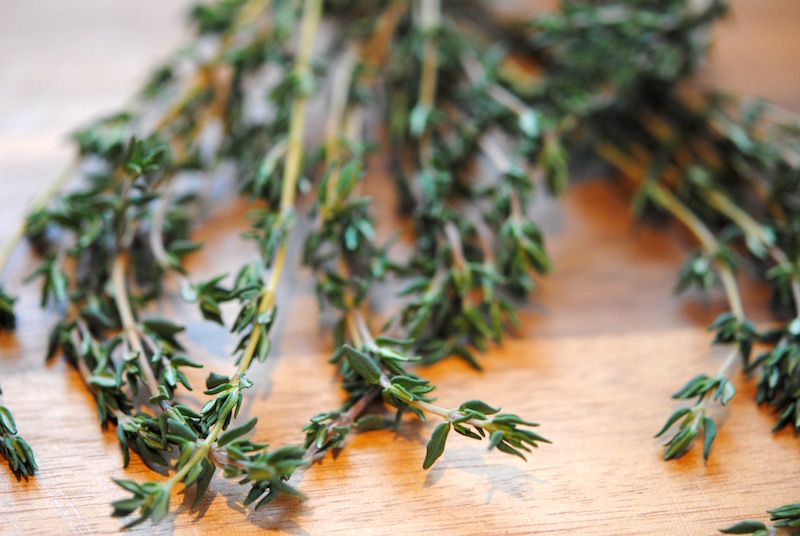
Freezing Herbs Whole
Herbs on woody stems, such as rosemary, sage, thyme, and bay can be frozen as is. Place a few sprigs inside a baggie and allow them to freeze overnight, then rub the leaves from the stems and return them to the bag to save space. They can also be left on the stem if you prefer. Store your herbs in the freezer until you are ready to use them, adding them directly to the recipes that call for fresh herbs.
Unfortunately, most of the softer herbs, including basil and mint, will turn black and soggy if you use try to freeze fresh herbs whole, but chives are one exception. Chives can be chopped and frozen for later use. The stems hold their tubular shape in the freezer, so all you need to do is chop them into segments and then transfer them to a container in the freezer. For herbs other than chives, it helps to use a little olive oil, as described below.
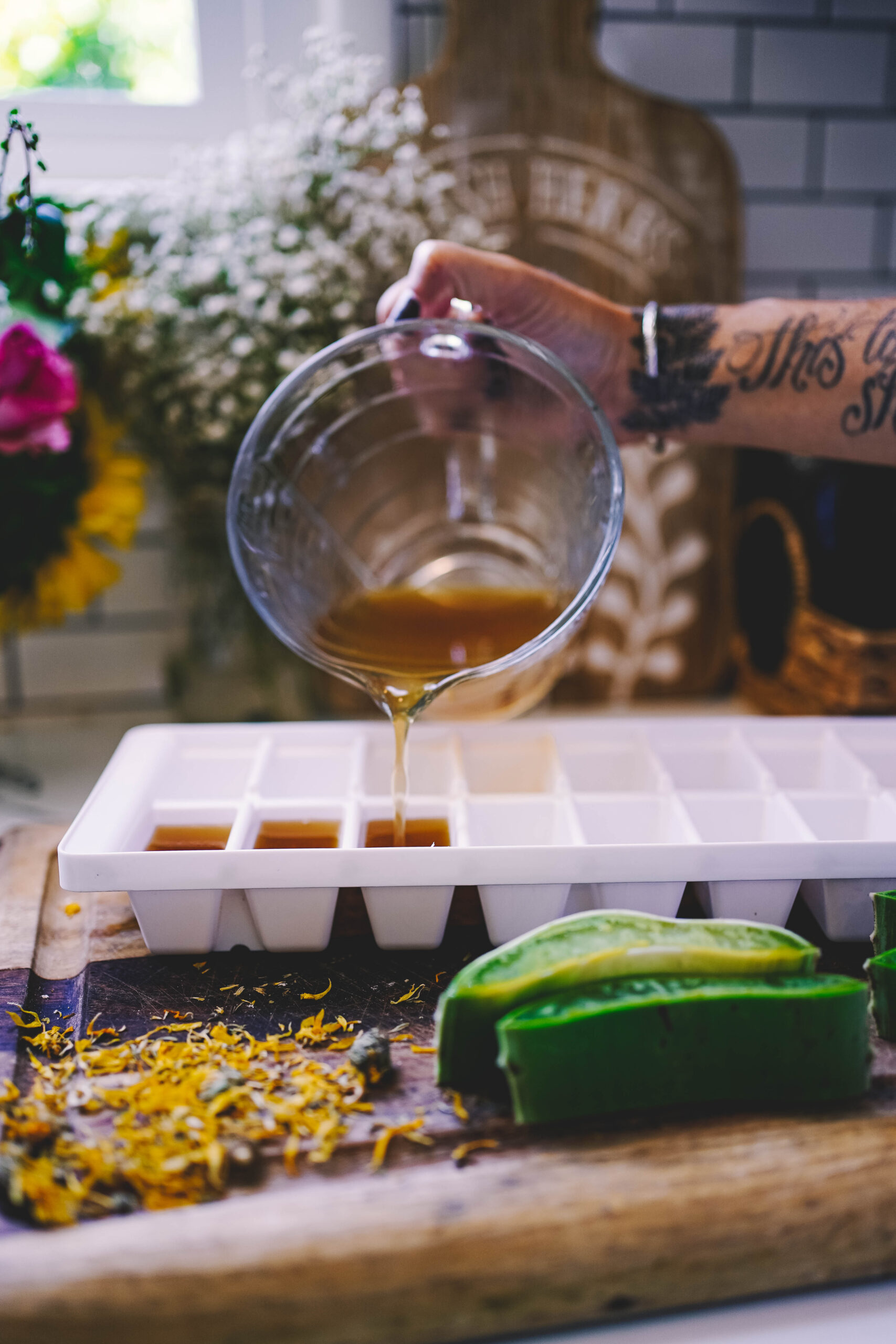
Preserve Leaves in Oil
Freezing olive oil in an ice cube tray with savory herbs floating in it is an easy way to add flavor to soups and stews or other recipes that call for a little olive oil and fresh, flavorful herbs. Coarsely chop your desired herbs, then add a pinch of them to each segment of an ice cube tray. Fill the tray with olive oil and freeze.
Once frozen, the oil and herb cubes may be left in the tray or transferred to a baggie or freezer storage container until you need them.
Blend an Herbal Paste
Another technique to freeze fresh herbs is by using olive oil blended with a little oil with your herbs to create a paste. At the Herbal Academy, we love the simplicity of making herbal pastes. We touch on this process in one of the Ebooks available in The Herbarium, and revisited this elegant recipe in our article, Herb Paste: An Easy Way to Preserve Fresh Herbs.
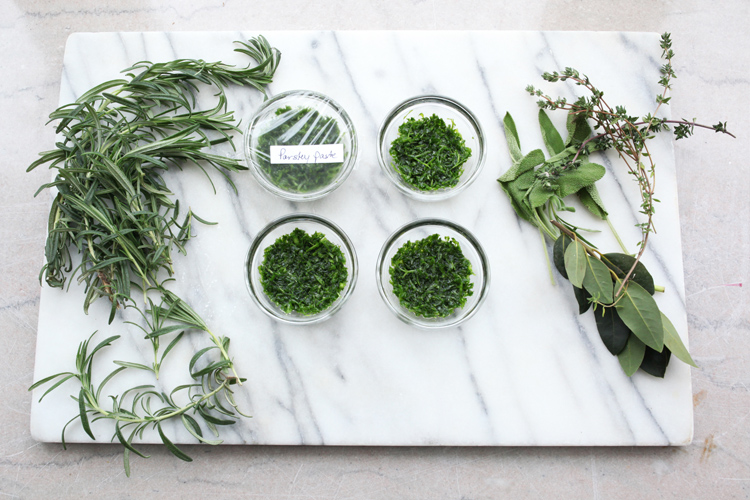
To make flavorful herb pastes, combine herbs and a small amount of olive oil using a blender or food processor. Stay clear of woody-stemmed or needled herbs for this recipe, and use herbs with softer leaves and stems, such as basil, chives, or dill. Process until the herbs achieve a paste-like consistency, and then transfer them to a cookie sheet or baking pan lined with waxed paper. Use a knife to score the paste so it will be easy to break apart later, and place the pan in the freezer until the paste hardens. After the paste has frozen, break it apart and store it in a freezer-safe, air-tight container or zip-top bag.
Herb paste can be thawed and used as a condiment on bread or meat, in soups, to season grain dishes such as quinoa and rice, or stirred into hummus for extra flavor.
For the full tutorial, visit this article.
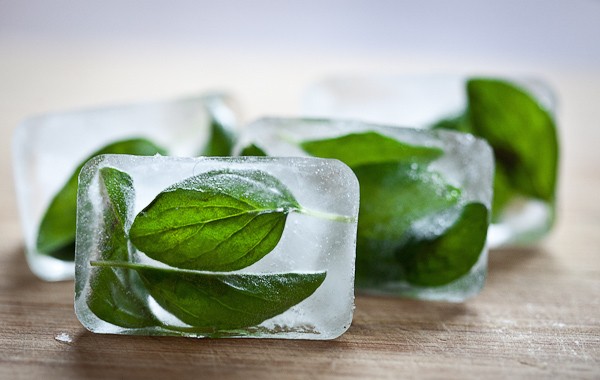
Make Herb and Flower Ice Cubes
And don’t forget about herbal ice cubes. Any herbal infusion or decoction that you like can be frozen in ice cube trays and used to add flair to summertime refreshments. Edible flowers such as nasturtiums add a pretty touch, and freezing strong infusions of peppermint, lemon balm, or other summertime herbs brings a twist to iced beverages with flavored ice cubes. Try hibiscus ice cubes in this delicious Hibiscus-Clove Cooler.
It’s also a great way to store herbs like comfrey, rose, and calendula that can be used for bug bites and sunburns. When you need a little herbal first aid, just reach into the freezer for a quick solution.
You can also use this technique for juice made from cleavers, chickweed, or other herbs that you prefer to use fresh.
Craft Herbal Ice Pops
Another fun way to use your freezer for your herbs is to make kid (and adult) approved ice pops. We have a recipe for High-C Herbal Ice Pops that features fruity hibiscus and refreshing chamomile, but a wide variety of flavors are possible by using different infusions and experimenting with other fruit juices in the recipe. These ice pops are also free of artificial dyes and are sweetened with fruit juice and honey, so they make a healthier alternative to most supermarket frozen treats.
For instructions on how to make ice pops, visit the article, Put the Healthy Back Into Summer with High-C Herbal Ice Pops.
